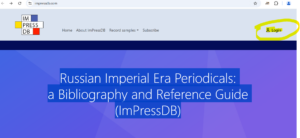
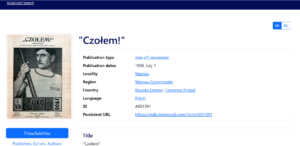


At UC Berkeley Library, with the leadership and guidance from the library’s current acting AUL for Associate University Librarian for Digital Initiatives and Information Technology, Lynne Grigsby, we are excited to report the completion of the Russian Women Writers Collection’s digitization. The collection’s analog items can be searched here.
The digital component of the project can be accessed here.
My predecessor, Dr. Allan Urbanic, was instrumental in helping us with the description of the project, which is as follows, “Russian Women Writers Collection
This project has been created in cooperation with the Russian National Library in St. Petersburg. In recent years, scholarship has focused on women’s contributions to the history of Russian literature. It has also been discovered that many of these writers were poorly represented in American libraries’ collections. The project first concentrated on filling in the corpus of women writers at the beginning of the 19th century. As the project moved forward, the works of Russian women authors of the later 19th century and the 20th century have been added.”
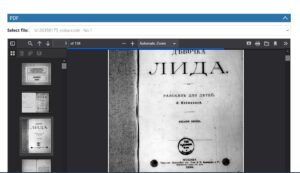
Terms governing use and reproduction
Researchers may freely and openly use the UC Berkeley Library’s digitized public domain materials. However, U.S. copyright law may protect some materials in our online collections (Title 17, U.S.C.). Use or reproduction of materials protected by copyright beyond that allowed by fair use (Title 17, U.S.C. § 107) requires permission from the copyright owners. The use or reproduction of some materials may also be restricted by terms of University of California gift or purchase agreements, privacy and publicity rights, or trademark law. Responsibility for determining rights status and permissibility of any use or reproduction rests exclusively with the researcher. Please see our permissions policies to learn more or make inquiries (https://www.lib.berkeley.edu/about/permissions-policies).
Source
Russian Women Writers
One can look at the usage data of the item called Di͡evochka Lida razskaz dli͡a di͡eteĭ as shown below,
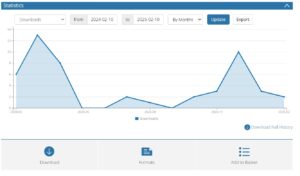
The UC Berkeley Libraries have started a trial of the East View database Illiustrirovannaia Rossiia Digital Archive (1924-1939). The trial can be accessed here.
The access is valid through October 24, 2024. If you are accessing it from an off-campus location, please use the VPN or Proxy. For more information on setting up your off-campus access, see here.
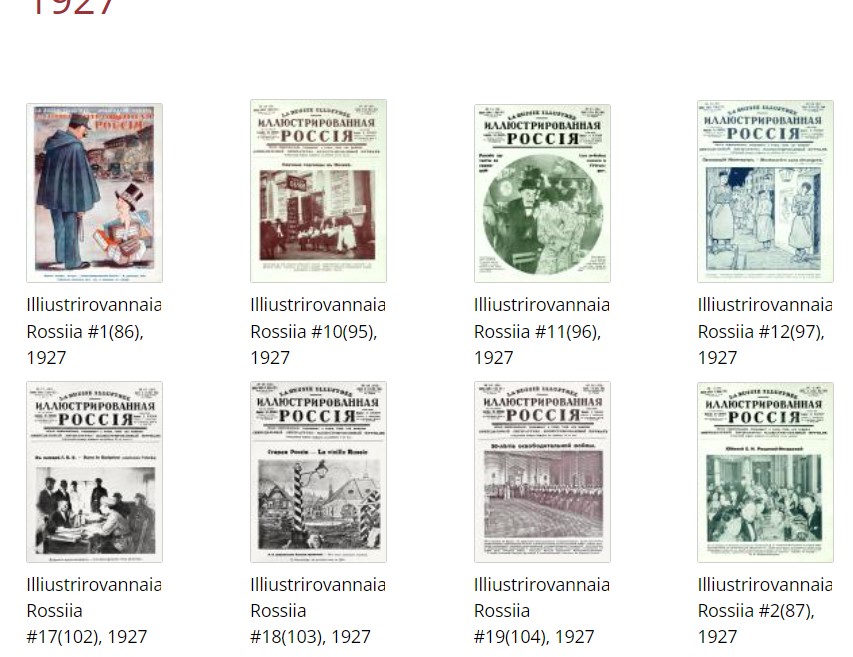
About the journal:
Illiustrirovannaia Rossiia was a literary and illustrated weekly magazine published in Paris from 1924 to 1939. The journal was aimed mainly at the growing community of Russian immigrants who had left Russia after the Bolshevik Revolution. Thus, Illiustrirovannaia Rossiia offers a unique fund of linguistic and visual representations, providing an indispensable insight into Russian cultural life in exile.
The Illiustrirovannaia Rossiia Digital Archive offers this influential journal’s exhaustive and meticulously digitized collection. This archive is an indispensable research resource with 748 issues and over 21,000 pages.
Key features include:
Comprehensive page-level digitization
Faithful reproduction of original graphics
Enhanced search capabilities
Seamless cross-searching with East View’s extensive digital portfolio
At the library, we have set up a thirty-day trial of Znamia Digital Archive through November 18, 2023.
The extensive archive of Znamia (Знамя, Banner), a highly regarded Soviet/Russian “thick journal” (tolstyi zhurnal), covers more than nine decades and is a rich source of intellectual and artistic contributions. This monthly publication has been a vibrant platform for literature, critical analysis, philosophy, and, at times, political commentary.
Originally introduced in January 1931 as LOKAF (Локаф), an acronym for the Literary Association of the Red Army and Navy, the journal officially adopted the name Znamia, which translates to “Banner” in English, in 1933. Throughout its history, Znamia has played a crucial role in presenting the works of renowned authors such as Anna Akhmatova, Alexander Tvardovsky, Yevgeny Yevtushenko, Konstantin Paustovsky, Yuri Kazakov, and Yuri Trifonov.
During the era of Perestroika, starting in 1986, Znamia underwent a significant transformation and became one of Russia’s most widely read literary journals, serving as a herald of the Perestroika movement.
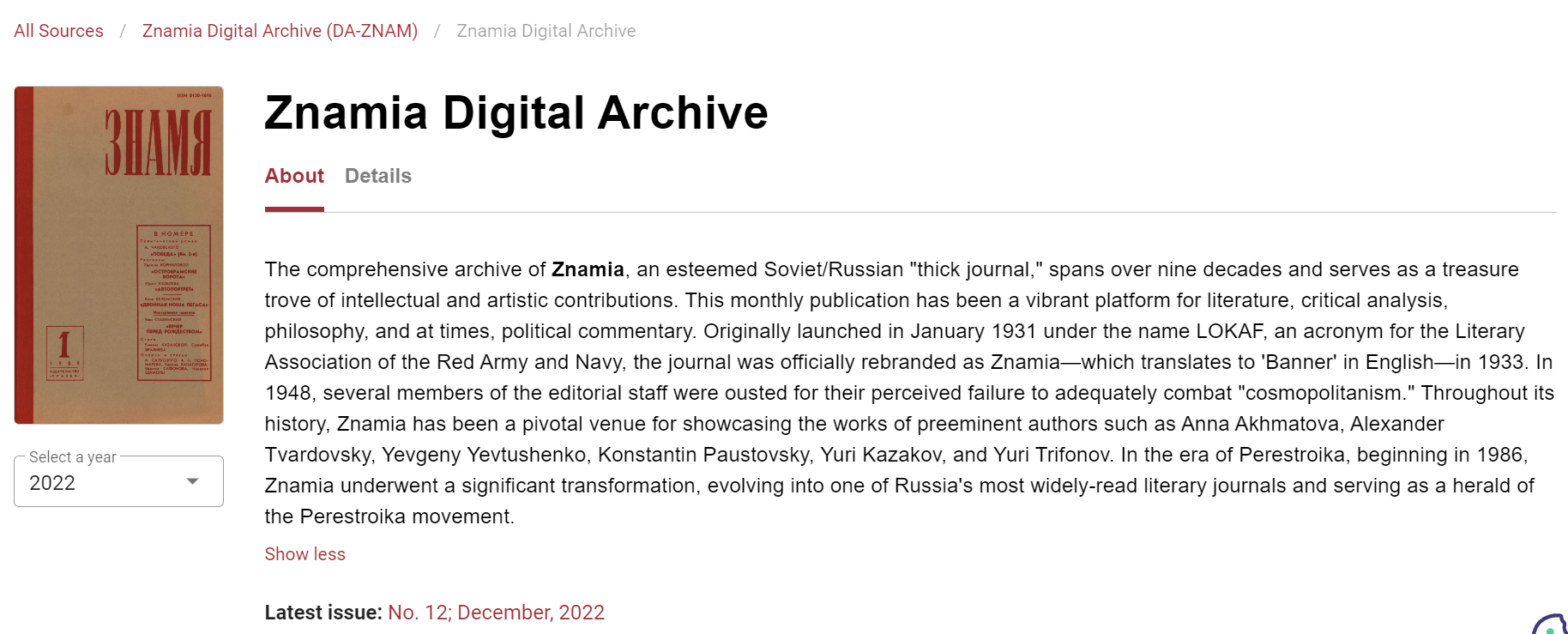
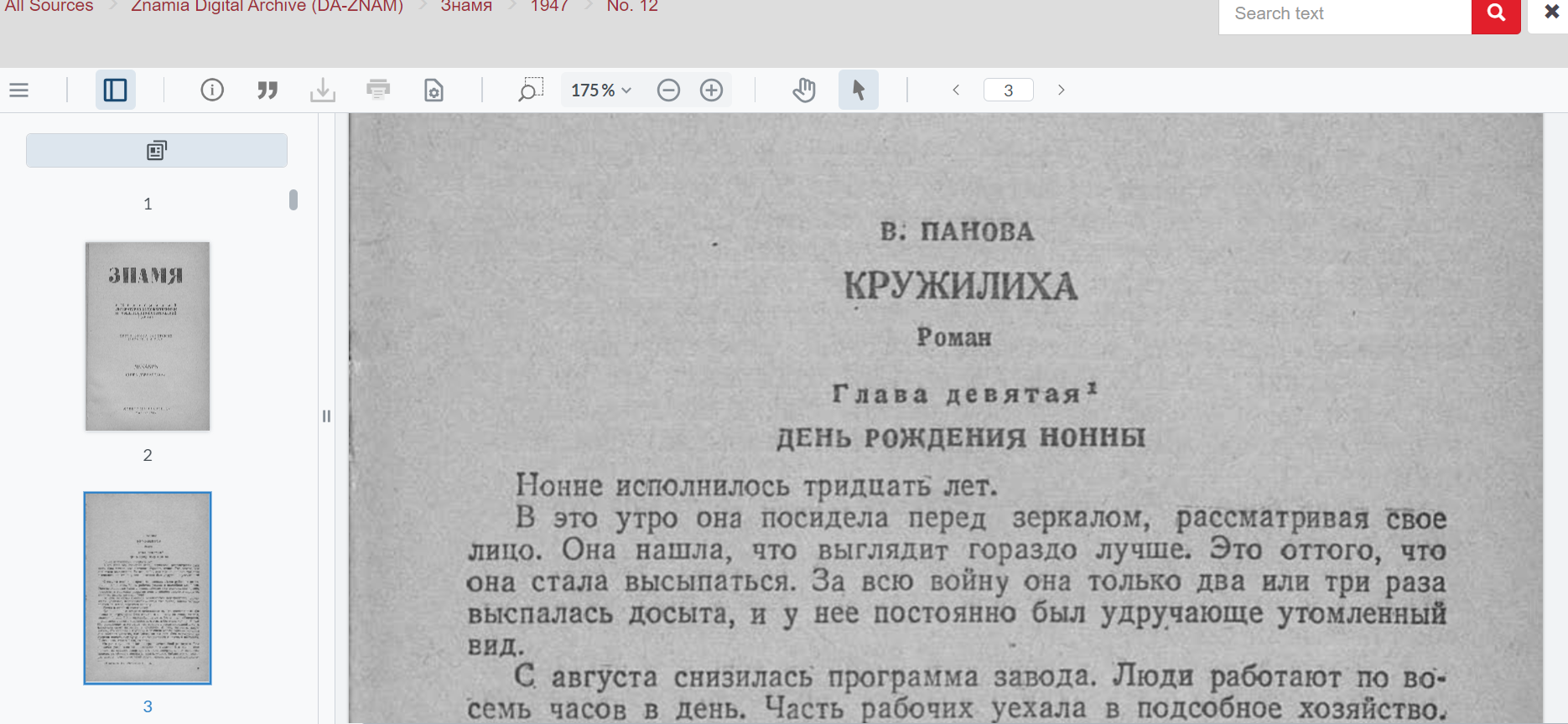
Access Link: https://libproxy.berkeley.edu/login?qurl=https%3A%2F%2Fdlib.eastview.com%2Fbrowse%2Fudb%2F6250